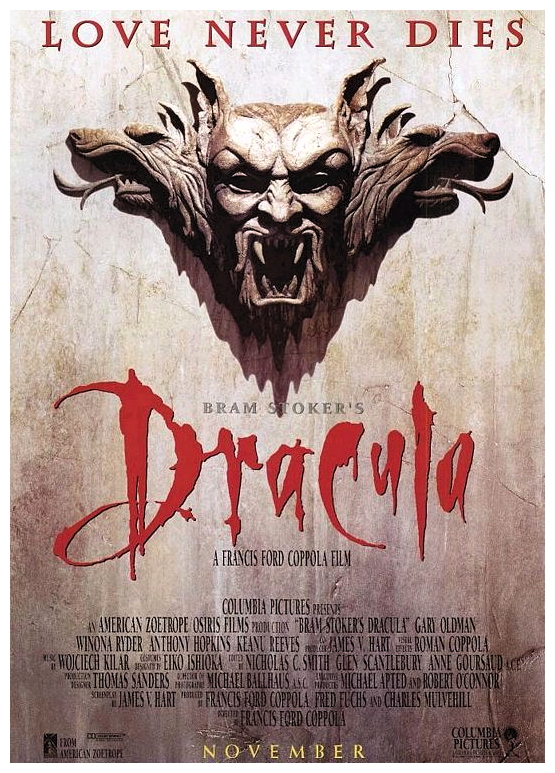Rated: 4 / 5
But yet we see around us every day the growth of new beliefs, which think themselves new; and which are yet but the old, which pretend to be young–like the fine ladies at the opera.
Dracula, by Bram Stoker, Chapter XIV, Dr. Seward’s Diary
Halloween season is here, so I figure I’d review at least one horror movie for this month. Francis Ford Coppola’s Dracula movie. Now, it may be titled “Bram Stoker’s Dracula,” because the director believes he stuck close enough to the source material to be considered the definitive film adaptation. And in all fairness, to this day, it probably is the one film that’s closest to the source material. But it takes enough liberties to where that’s a rather impudent position.
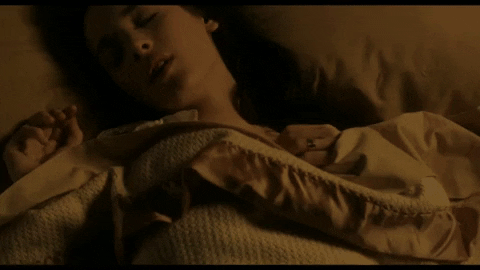
The biggest changes to the source material involve showing Dracula’s backstory and how he became a vampire. Plus making his motivation primarily about acquiring his long lost love in a reincarnated form. Plus the film takes liberties with how certain characters are, particularly Mina (who falls head over heels for the vampire Gary Oldman; which may be understandable, but still…), Lucy who is less innocent and more sluttish (albeit for a reason I can sympathize with, given the thematic implications of this the film utilizes), Mina who practically becomes a full-blown Dracula ally (even going so far as to use magic pulled out of the film’s ass against the human hunters during the finale), and Van Helsing to an extent.

Other than those caveats, this film certainly does cover far more events and dialogue that is in the book than any other adaptation of the source material I have seen. Plus I have to respect its portrayal for vampires in general, with regard to their behavior, abilities, and powers of seduction, and mesmerizing individuals they can lay their eyes on. The key moment where I knew this film completely nailed it was when Helsing was supervising the blood transfusion for Lucy. Her moaning throughout the sequence striking a balance between ecstasy and pain. Giving the vibe that being a victim of a vampire is a horrible thing, yet there is a seductive allure to it that one may be tempted to give into. The idea being that Lucy’s personality of toying with others and having sexual desires she consciously inhibits (most of the time), goes into overdrive when under the influence of the vampire. Because vampires bring out the most sinful desires within people, when using their hypnotic powers on them. I don’t think it’s been portrayed better than with what happens to this Lucy character (played excellently by Sadie Frost).

There’s none of that bullshit vampire power stuff involving speed-running (I think Buffy started that trend, which became permanent when True Blood and Twilight came into being). This is good old-fashioned vampiric powers that are demonic, with little to no sympathy; they are the devil’s children after all, the undead who shun God. Dracula transforming into rats, mist, and a freakish giant bat, and a freakish wolf. Plus those interesting camera tricks evoking an interesting atmosphere and perspective with regard to being in Dracula’s castle. It’s great eerie stuff. Just wish that Dracula turned into an actual bat as opposed to the demonic thing we got here. But that’s nitpicking, because it’s not a bad change per-se, especially in the context of this film.

Jonathan Harker may be played by a miscast Keanu Reeves, who has a laughable attempt at a British accent. But we have to be fair here. He was too exhausted to play this role adequately given that he starred in Bill and Ted’s Excellent Adventure, Bill and Ted’s Bogus Journey, Point Break, and My Own Private Idaho, all within 3 years prior to this movie (and that’s not including his more low-key roles in other films, plus the animated Bill & Ted series). Still though, his performance makes it less likely to take the film seriously.
Though he can’t take all the credit for putting forth a questionable performance. Anthony Hopkins seems to go intentionally overboard at times with his portrayal of Van Helsing. This isn’t Anthony Hopkins playing Van Helsing, this is Van Helsing playing Anthony Hopkins. The primary moment where I knew he had no fucks given about his role was when he acts rather nutty after learning that Dracula (and thus a vampire) is behind the strange events. And how he dry humps a guy while shouting about how Lucy is now a “bitch of the devil.” How can I treat this as, other than comical? True, there are moments where he’s eccentric like this in the novel, but not to this extreme. He doesn’t dry-hump guys while shouting about how screwed people are. He does tend to say things matter-of-factly without much consideration for the feelings of others in the book, but not while being this outrageous. Hopkins dials up Helsing’s quirkiness up to 11 in this film, to the point of overdoing it. But it entertains me for the wrong reasons, so I can’t really hate it.
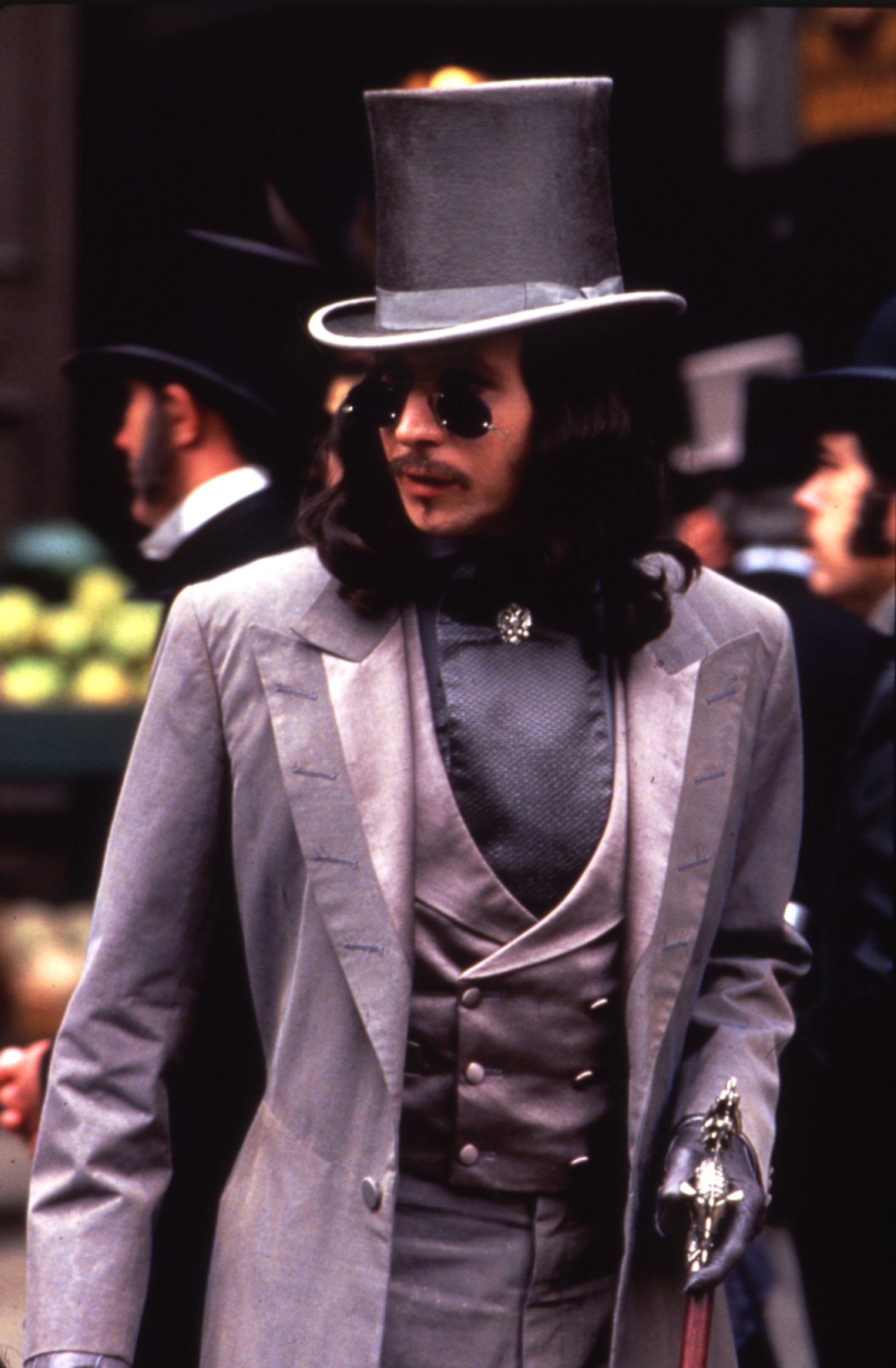
Gary Oldman though, he killed it. He is the best Dracula ever (with all due respect to Bela Lugosi). When he’s in the medieval ages speaking another language, or in the Victorian era being more, well, Victorian. When he’s a fierce monster, or a charming devil. He’s got the entire package. He’s probably the only actor perfectly cast in his role in this film (though the actors playing Dr. Seward and Quincy Morris aren’t bad either, though the latter isn’t given much time to shine).

The film is at its best when it comes to costumes, set design, and cinematography. It’s a gorgeous film, with tremendous atmosphere (particularly while at Dracula’s castle, and in Lucy’s tomb). Plus some great scene transition tricks, one example being fading out from the bite marks on a neck, with a glowing wolf’s eyes fading into the next scene, with the eyes matching the position of the bite marks. Jolly good stuff.
All that said, there are some problems I have with the film (aside from certain character portrayals). I couldn’t fully get behind the whole reincarnation bit the entire film hinges upon. It just didn’t make sense to me. I mean, if reincarnation is a thing here, what about heaven and hell? What about human souls? Do they come back if they’re damned (for a second chance)? Do they come back if they’re not (guess heaven isn’t that great of a paradise)? It conflicts wit the religious elements that can’t be ignored, given that the film doesn’t shy away from them (crosses do work here; none of that Blade revisionist bullshit here). Granted, I’m willing to overlook this while watching the film for the sake of being entertained by it. But it’s something that prevents it from being a perfect film, in the sense of critics doing a detailed analysis of it to see if it holds up to scrutiny, has little to no plot holes, in-universe contradictions, etc. I mean, the chosen actors and their performances prevent the film from ever achieving that level of high-regarded moviehood, but this stuff matters to me damnit!

The other problem is that the change in Dracula’s motivation, from book to film, does harm as well. In the book, he finally decides to up and leave Transylvania for the purpose of laying out coffins all over other countries so he can have many places to hide/rest. So that he can feed on others, raise his own clan of vampires, and dominate the world. So that he can become stronger and more intelligent, to become an even more powerful being. To be fair, this was underutilized in the novel, as things stayed too conveniently with Dracula going after the Harkers and their friends (this doesn’t exactly scream “world domination”). But hey, at least that was a sensible motivation given why he would want to be buying up property in several locations. There isn’t a hint of that in the movie. He just buys up property, kills Mina’s best friend, then begins converting Mina over to his side because she’s somehow reincarnated from her medieval years. It just seems less ambitious overall. Yet I can forgive this, given the novel’s under-utilization of its potential.

Lastly, the ending itself. As far as events go, it’s fine. It stayed fairly close to the book in how things turned out (minus Mina being infatuated with Dracula; she still loved Jonathon, and despised that she was cursed because of the vampire). I just thought it was strange that it would end with her decapitating Dracula, and looking up at the ceiling. Just makes the film end with a, “Well, ok, that happened,” moment.
Which brings me to the film’s deleted scenes, which showcased that it could’ve been improved upon. There was stuff left on the cutting room floor that should’ve been kept in the film (or in some cases, replace various scenes). Starting with the opening, with a lot more blood being involved with Dracula stabbing the giant cross. Blood didn’t just pour out of the cross to fill the cup for Dracula to drink. It also sprayed onto his face, and filled up the room consuming his wife’s body. A sort of baptism in blood. It also alters the ending too, just a bit. Mina doesn’t decapitate Dracula (she does still pierce his heart more fully). Instead she turns around and walks back out with Jonathan and the others. And there’s a more vague visual showing them moving across the floor of a church (carries a double meaning; the scene is more symbolic than anything else). It makes for a more interesting and fitting finale than the one we got with the theatrical cut.
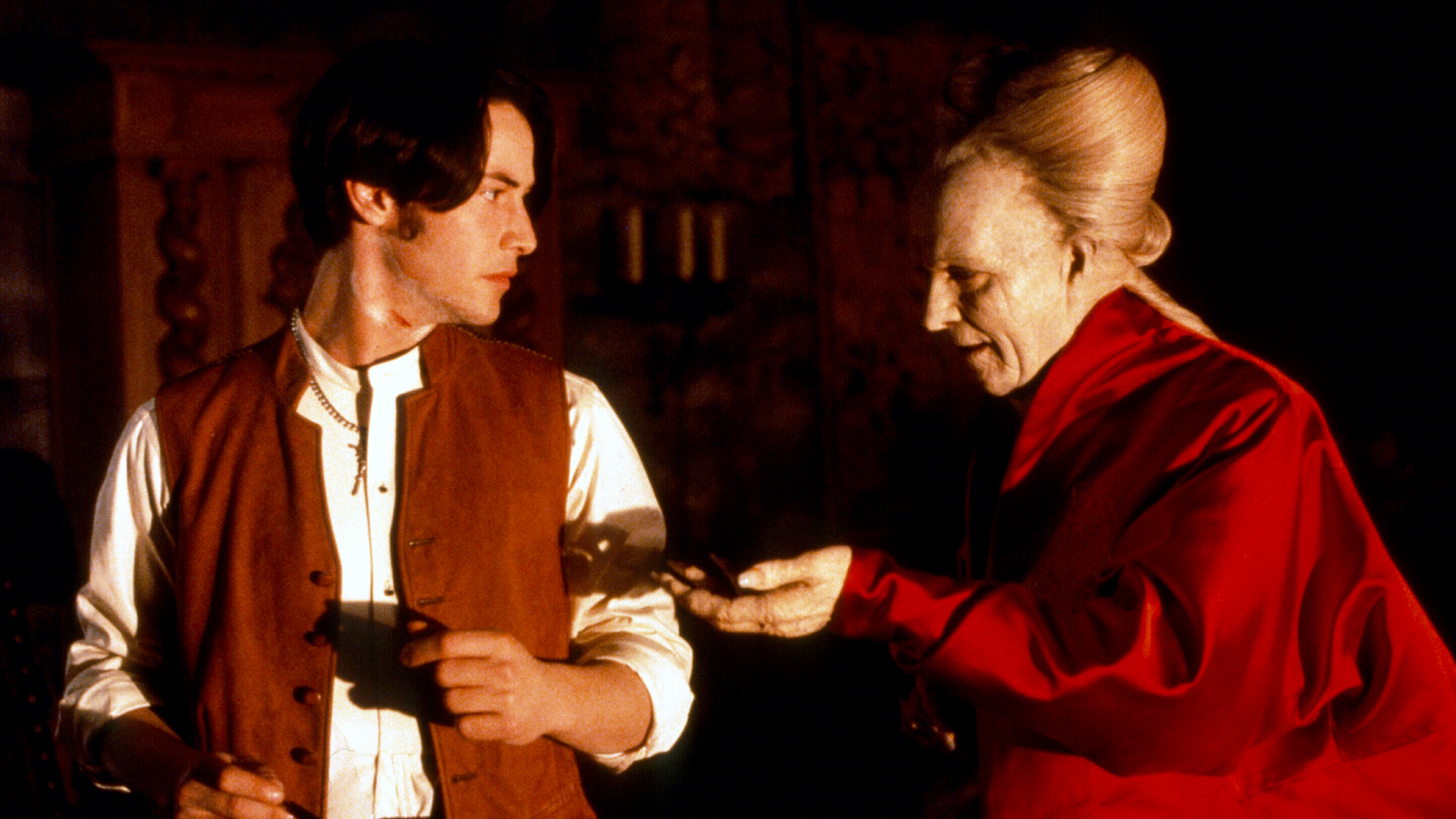
The other element I noticed between the deleted scenes and theatrical cut is Mina’s attitude. In the deleted scenes, she’s a bit more on the subservient side, and more obviously in love with Jonathan. In the theatrical version, seems like the feminism movement took her over, as she’s a bit more dissatisfied with how she is in her life and with Jonathan. Which in-turn makes her more willing to be seduced by, and fall in love with, Dracula. I’d rather it stick closer to the book in this regard. Oh well, at least Keanu Reeves would have another shot at Winona Ryder in Destination Wedding.
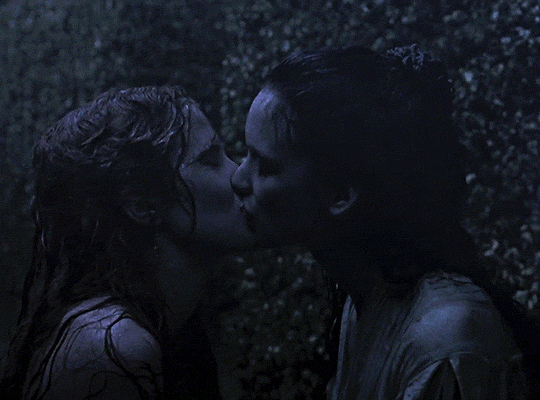
In any case I made a fan cut of this that, while utilizing deleted scenes with shoddy video quality (can’t be helped, no more than the fan cut of The Crow can do any better either). Guess I’m turning into one of those snobs who thinks he can do better than the director. Then again, I do believe the director was forced to make some of these changes for the theatrical cut partly to appease some Christian blowback from the violent imagery of the extended opening sequence, among other factors that involved studio heads making the calls during post-production.

Even with all its flaws, this is still one of the best (I argue the best) film adaptation of the Dracula story out there. Highly recommended.
PS: That teaser trailer for the film is killer. Poster is pretty damn good too.

